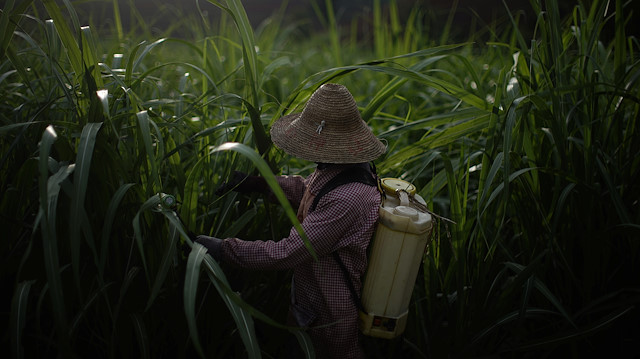

File photo: A farmer sprays pesticides at a sugar cane field
The European Commission said on Wednesday it planned to increase organic farming and cut agricultural chemical use to protect the environment, proposals welcomed by green groups but which farmers said would make them less flexible.
Agriculture is a contributor to climate change – producing around 10% of EU greenhouse gas emissions – and is at the forefront of its consequences, with European farmers battling more intense droughts and flooding.
The EU Commission, the bloc's executive, proposed goals to restore natural ecosystems and steer agriculture towards its EU-wide target to reduce net emissions to zero by 2050.
"If the corona-crisis has taught us anything, it is that we have to recalibrate our relationship with the natural environment, we have to become more resilient," EU climate chief Frans Timmermans said, referring to the novel coronavirus pandemic that has raised questions about the relationship between human activity and nature.
The Commission wants to cut the use of chemical pesticides by 50%, reduce fertiliser use by 20% and cut sales of antimicrobials – a category of substances that includes antibiotics – for animal and fish farming by 50% by 2030.
Other targets tackle land management. The share of organic farming should reach 25% in 2030, while 10% of agricultural land must be turned over to "high diversity" landscapes, such as ponds and hedges.
The targets are not yet legally-binding and will be subject to an impact assessment, the Commission said. That would also apply to EU nature restoration goals to take effect in 2021, EU environment chief Virginijus Sinkevicius said.
Farming groups said organic farming typically produces smaller yields and ring-fencing land as natural habitats would make farmers less able to respond to increases in demand.
The Commission said a minimum share of funds from the EU's common agricultural policy (CAP) should go to "eco-schemes" that pay farmers to farm organically or capture carbon dioxide. The CAP's size will depend on the bloc's next budget, which EU leaders are reworking due to the pandemic.
#pesticide
#EU
#agriculture

